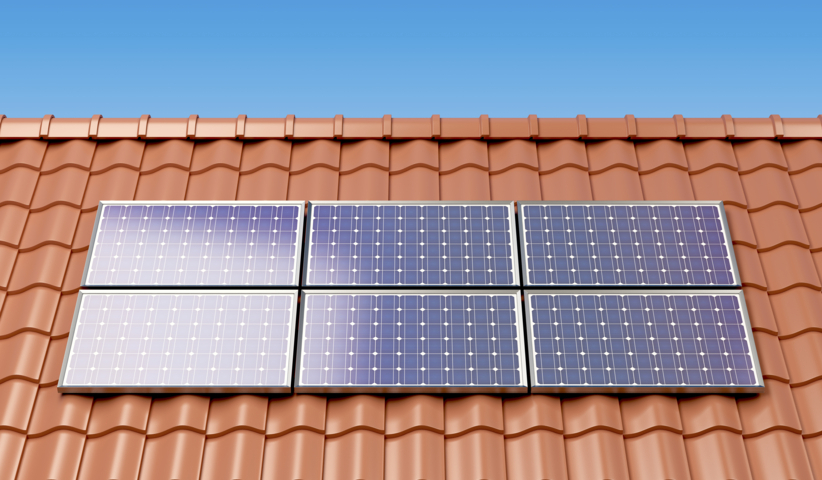Charging Electric Cars With Solar Panels
One of the most cost-effective approaches to powering your electric car is to install a solar panel system in your home to enable solar EV charging.
Though it may seem like a great deal of money, when you account for not having to burn through your paycheck to buy petrol and keep up with increasing electricity prices, it’s a financially-sound decision in the long run.
But what is solar energy? How do we use it, and what really is the best EV charger on the market?
In this article, we’ll cover:
- How solar charging works
- How many solar panels you actually need to charge your EV
- How much solar panels cost to install
- How much money you can expect to save
- Chargers that are compatible with solar panels
- Things to consider before installing solar panels (pros and cons).
How Does Solar Charging Work?
Solar charging works by utilising the energy from the sun using photovoltaic (PV) panels which absorb the sun’s rays and turn them into electrical energy.
The direct electrical current generated is then sent to a charge controller to regulate the electricity supply into a battery that safely stores the harvested energy.
Once there, the direct current is sent to an inverter, where it is transformed into a safer alternating current, ready to be used on powered devices and equipment.
How Many Solar Panels Are Needed to Charge Your EV?
With the right solar panels, an EV can be charged quickly and efficiently regardless of the number because the overall energy output of the system is the most important factor.
However, it is worth considering:
- Local climate
If the climate in your area is characterised by more rainy days than sunny ones, your solar panel won’t be able to generate as much energy as it would if it were in a sunnier climate.
- Your particular roof
Solar panels can be difficult to install on some roof types. Although mounting a solar panel to a tiled or iron roof is relatively straightforward, thatched roofing is not a viable option due to the danger of rot and fire.
- Solar panel efficiency rating
The efficiency rating of a solar panel serves as an indicator of its capacity to produce electricity. The higher the rating, the greater its output.
For fast and reliable EV charging, it is recommended you either install a 4kW or 7kW solar system.
A 4kW solar system usually needs 16 roof panels to be set up, though the more modern products can manage with just 12.
Depending on the system’s efficiency, each panel can generate anywhere from 240 to 320 watts of energy.
How Much Do Solar Panels Cost to Install?
Over the past few years, solar panels have become increasingly affordable thanks to the advancements of the solar industry and the use of more economical materials.
As a homeowner, there are many factors that will reflect in the costs of installation, such as the size of the solar panel system, the type of solar panel used, the orientation of the roof, and the type of property.
As a general rule of thumb, you can expect to pay around £6,000 if you’re looking for a 4kW solar system without an energy storage system, whereas the same system with an energy storage system will cost around £8,000.
Upgrading to a 7kW system could typically cost up to £11,000, depending on the type of solar panels and size of the energy storage system you decide to buy.
To reduce the cost barrier, there are a number of grants available to homeowners which may provide a discount or even qualify you for a free one.
You can find out more about the Eco4 grants here.
How Much Can You Save With Solar Charging?
Solar panels provide you with a sustainable and eco-friendly way to produce your own electricity. Paired with battery storage, a large enough solar system can generate sufficient electricity to keep your house humming indefinitely.
But are they worth it?
When you look at the cost of a lower-end solar system — plus the 5p per kWh electric vehicle tariff — the return on your investment won’t be seen until you’ve used over 100,000kWh of charging.
That’s a lot of miles depending on the make, model, and efficiency of your vehicle!
But with NimbleFins reporting the average British household spends around £1,435 annually — with petrol cars typically costing £1,272, and diesel cars costing £1,683 (depending on their average mileage of 6,300 and 9,400 miles per year, respectively) — the gap may be closer than you think.
Especially if used in conjunction with providing household supply, given annual electricity bills average between £1,723.76 and £3,483.70 (according to data provided by British Gas).
Solar Compatible Chargers
Compare the best solar chargers in our main guide here.
Zappi Charger
Made in Britain, the Zappi offers nationally famed Myenergi robustness, with a serving of style and charging flexibility.
Fitted with in-built earthing protection and three charging modes, it’s compatible with all plug-in vehicles – with the added bonus of tethered or untethered charging.
Other Key Zappi Features:
- Multiple charger support
Both type 1 and type 2 EV charger connectors are supported by this device.
- Ability to access the OLEV grant
By using an accredited installer, the Zappi can be installed under the OLEV grant scheme.
- Flawless system integration
It works in perfect harmony with solar PV, or any other type of microgeneration, and battery storage.
- Easy-to-see consumption
The Myenergi app provides clear visuals of your solar energy consumption, so you can instantly tell how much energy you are taking from the grid and how much you are using.
It also allows you to plan your charging times to take advantage of lower off-peak electricity tariffs.
- Can save you costs
Fitted with an Eco+ mode that will only charge your car if the amount of solar power you are producing is greater than the amount of energy you are using in your home — preventing you from any surprise electricity bills.
Indra Smart Pro
With the price of electricity soaring, the Indra Smart Pro offers both grid and solar charging.
Its smart interface allows you to schedule charging to lower-tariff power hours, and it offers an impressive 7.4kWh charge speed.
If you’re looking for something simple that delivers on performance, look no further!
Other Key Indra Smart Pro Features:
- Sleek design
Boasting an aesthetically pleasing look, the Indra Smart Pro’s cable wraps seamlessly around the back, keeping it out of sight.
The charger end also fits snugly into the recessed holster in the front of the charging unit, completing the sleek, unified design.
- Multiple charging functions
Three charging functions, including a quick-acting “boost” that overrides all other settings and schedules to provide lightning-fast charging.
- Universal platform
Indra App is a universal platform that allows users with any device (such as Android, iOS, or Windows) to access it.
- Built-in safety features
The Indra Smart Pro EV Charger is UL-certified and provides a secure charging environment with its built-in safety features, including protection from overcharging and other potential risks.
- Upgrades available
Homeowners can choose from a variety of upgrades, including home security and Wi-Fi compatibility with this device.
Hypervolt
The Hypervolt is a compact, premium solar EV charger at a competitively modest price.
Designed with a handy built-in cable tidy and a neat LED status light ring, its user-friendly interface is also compatible with Alexa voice control and has both Wi-Fi and 4G connectivity.
Despite being slower on the charging size at a respectable 7kWh, it comes with a 3-year warranty (optional upgrade to 5 years) and built-in PEN protection.
When it comes to stylistic functionality, you can’t go wrong with the Hypervolt!
Other Key Hypervolt Features:
- Load balancing
Automated load balancing management to monitor the system and keep it from becoming overloaded or destabilising.
- Seamless integration
It seamlessly connects with all solar panel installations, creating a smooth and effortless solar integration.
- Easy-to-use interface
The Hypervolt smart app allows you to adjust charging modes with the swipe of a finger while offering a live view of your energy usage.
- Choose your socket outlet
Comes with either a Type 1, 2, or 3 socket outlet of your choosing.
- Can save you money
Fitted with a smart meter, you can easily monitor energy usage and take advantage of the most cost-effective energy tariffs.
How Can Solar Compatible Chargers Help?
Solar EV chargers offer the same features as a standard EV wall charger, with the additional benefit of solar-powered monitoring and control.
The charger can come fitted with one or more current clamps that can sense the power movements in your home to identify when there is an abundance of solar power.
They can also be programmed to charge your vehicle while your solar panels are reaping the highest amount of solar energy from the sun.
This can help make the most of the available solar energy to charge your vehicle, significantly reducing the amount of electricity you need to draw from the grid.
Can You Use Any EV Charger With Solar Energy?
Yes, you can use any EV charger with solar energy, but there are certain considerations to keep in mind.
Verifying that your solar panels are capable of generating the power to charge your electric vehicle should be your first step.
You’ll also want to ensure that your EV charger is able to draw power from a solar panel. Many EV chargers are equipped to work with solar panels, but it’s important to confirm the compatibility of your charger prior to purchase and installation.
Additionally, if you want to make the most of your solar energy, look into installing a solar battery storage system to store extra energy generated during the day.
This can help make sure that you have an uninterrupted power supply for charging your EV, even when there is little solar energy available.
What to Consider Before Installing Solar Panels for Your EV
Solar Charging/Solar Panel Pros
- Renewable energy source
Solar energy is a source of renewable energy, providing an infinite source of sustainable power.
- Environmentally friendly
Solar energy is a clean and sustainable energy source that does not cause harm to the environment by releasing toxic emissions, unlike fossil fuels.
- Cost-effective
After you have taken the plunge and purchased either a solar panel or a solar charger, the cost to operate it is surprisingly low.
- Investment
Many of the most reliable solar panel manufacturers provide a warranty of up to 25 years.
This makes the decision to invest in solar energy for your home a secure and financially sound long-term investment that will increase the value of your home for years to come.
- Reduces electricity bills
Solar energy provides a great way for many people to supplement or replace the electricity they buy from a grid.
This allows them to independently power their homes and save a considerable amount of money on their monthly power bills.
Solar Charging/Solar Panel Cons
- Initial startup cost
Although the cost of solar technology has dropped considerably in the past decade, a comprehensive solar installation still requires a substantial financial investment.
- Weather dependent
Without the power of the sun, any system reliant on solar energy will lack the necessary energy to generate power.
This can be a challenge for people in places that have reduced levels of sunlight, or areas with unpredictable weather patterns.
- Installation
While most of the components involved with installing solar panels are relatively simple, it can be a daunting task if you’re not used to being on roofs, or are not comfortable working with electricity.
This can also be further complicated depending on your roofing type, and whether any specially designed support brackets need to be installed.
- Solar energy storage is expensive
Solar batteries are an essential part of your solar panel system given they are
capable of storing the surplus energy generated by your solar panels.
However, they can be costly depending on the type and size of the battery required.
Investing in solar panels is an environmentally friendly and cost-effective option that will pay for itself in the long run.
If you have already put in the effort to have solar panels set up on your property, there is an obvious advantage in switching from a diesel or petrol-driven vehicle to an EV — provided your charging unit is compatible with your current solar panel system.
If for any reason you are not able to install solar panels onto your roof, don’t be concerned!
Taking advantage of the power grid to charge your electric car is still an economical and eco-friendly method of travel. One way to make that happen is to invest in any of the home charging stations we’ve mentioned above.


